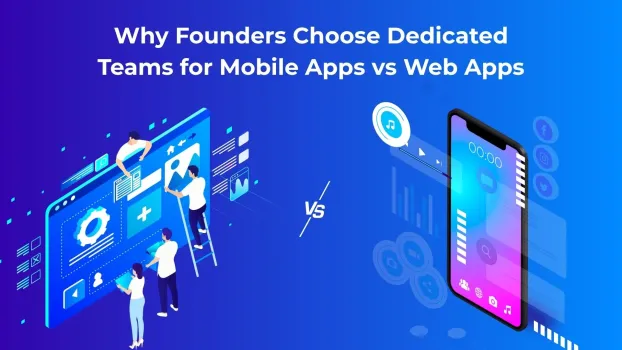
We provide continuous system monitoring, timely updates, and expert issue resolution, ensuring your digital platforms operate seamlessly with maximum uptime and minimal disruptions.
Pioneering customized web and mobile application development with a focus on excellence.

Global Clients
Successfully Projects
Years of Excellence
Client Retention





With expertise in almost every programming language, our 4,000+ team delivers dynamic solutions that align with modern business demands.
Node Js
React Js
Laravel
Python
Flutter
Java
Swift
Codeigniter
Artificial Intelligence
Machine Learning
Kotlin
React Native
When excellence matters, choose WebOConnect. We combine creativity and precision to deliver superior web and mobile solutions, tailored for your success.
Every partnership reflects the trust and confidence our clients place in us. Together, we create impactful solutions that inspire growth and pave the way for long-term success.
Healthcare
Finance
Retail & E-commerce
Education
Travel & Tourism
Real Estate
Media & Entertainment
Automotive
Lifestyle
Productivity
Beauty
Communication
_thumb.webp)
The European startup world is chasing speed, talent, and cost-efficiency. European founders know how important growth has become. From Berlin to Barcelona, entrepreneurs are looking for smarter ways to scale their tech teams. And that too without putting a dent in their pockets or wasting precious time in prolonged hiring processes. Also, that’s where a powerful model is gaining serious ground, the distributed startup model. With the growing craze to hire Indian developers, European startups are moving towards this shift quite smoothly. They are building a remote development team in India, and saving almost 50% of their hiring and overhead cost while aligning with global vision and local execution. In this article, let us dive into what this model really looks like, why it works so well for startups in Europe, and how you can make it work for your business too. What Is the Distributed Startup Model? A model that is all about flexibility and freedom: distributed startup model. Rather than building a team in one geographical location, these models allow startups to build remote teams without compromising on borders and embracing global accessibility. From the various different countries, these teams operate really well. For example, you might have your product lead in Paris, your marketing head in Mumbai, and your developers from Bangalore but everyone is synced as per your brand's need. Everyone works together online, without any shared office, but with shared tools and without any restriction of strict 9-to-5, just a clear focus on building something great and achieving their goals. This model is fast becoming the default for startups that want to: Launch quickly Reduce burn rate Access global talent Stay agile in uncertain markets Europe’s startup ecosystem is ideal for this approach, especially when you hire Indian developers who bring a strong technical edge at a fraction of European salaries. Why India? Why Now? India has long been known for its tech talent. But it’s not just about quantity anymore. Today, India’s developer community is skilled, startup-savvy, and globally connected. Here’s why so many founders are choosing to build a remote development team in India: 1. Cost-Effective Without Compromise Let’s face it, hiring locally in Europe can be expensive. With Salary expectations growing, there is fierce competition in the market of Europe. With choosing to hire Indian developers, many founders are enjoying low cost benefits and getting high-quality work done with lower overall costing and quick deployment. 2. Startup Experience That Matches Yours Indian developers usually are experienced with working in global startups and understand things like agile development, MVP testing, and tight launch timelines. Apart from following instructions they also contribute ideas, identify risks, and work like true partners. 3. Time Zone Advantage Hiring a remote development team in India is really beneficial. You can get the product built while you sleep. Also, with WebOConnect you can hire developers for your timezone as well. This kind of round-the-clock development gives your startup a competitive edge. 4. Scalability Built-In Need to expand your team for a product launch? Want to scale down after a funding round? Enjoy flexible arrangements with Indian developers. What European Founders Are Saying European startups in fintech, SaaS, health tech, and e-commerce are already reaping the rewards of this model. Take startups like: A Berlin-based AI startup that cut time-to-market by half by hiring a remote development team in India. A Lisbon-based healthtech platform that built their MVP with 3 developers from Bangalore and saved 60% on development costs. A Stockholm SaaS company that chose to hire Indian developers instead of delaying their product due to hiring bottlenecks in Sweden. These stories aren’t outliers—they’re becoming the norm. Building Your Remote Development Team in India: A Simple Framework For building a remote development team you can use these steps: Step 1: Define Roles Keep product and customer-facing roles close to home. But for engineering, development, QA, and testing—look abroad. Step 2: Partner With a Reliable Indian Tech Partner Don’t go solo. Partner with an established hiring platform, agency, or outsourcing provider in India. With these reliable platforms, hiring a remote development team in India creates effective teams. Step 3: Faster Communication Using great tools like Slack, Notion, and Zoom helps in transforming your working with remote teams. Fix ownership and accountability, opt for weekly sprints or daily standups and ensure proper documentation. Step 4: Nurture a Culture Celebrating small wins do not cost you a lot but building a culture for your team is your long term win. Communicate feedback regularly not for pointing someone out but to create a culture that helps everyone to grow. Involve your Indian team in strategy sessions. When they feel part of the mission, they’ll deliver more than code. Myths About Hiring Indian Developers, Busted "Time zones will slow us down." Actually, they’ll speed you up. With overlapping hours and overnight progress, you get more done each week. "Quality won’t match our standards." Indian developers working with global startups meet international standards daily. Vet your team well, and you’ll be surprised by their professionalism. "Remote means disconnected." Not anymore. With the right tools, the remote feels just like being in the same office, minus the commute. Why This Model Is Built for the Future The pandemic may have normalized remote work, but what we’re seeing now is something more permanent. The distributed startup model is here to stay, not as a temporary fix but as a smarter way to grow. Founders who hire Indian developers are already ahead of the curve. Hiring done with spending less overheads, building faster and better teams with offering transformational structures like remote-first culture. Additionally, these startups prove that great teams don’t really need big budgets, just smart systems and the right people, wherever they are. Final Thoughts: Go Lean. Go Global. If you’re a founder in Europe, and you're trying to balance speed, quality, and budget, look east. Set up your remote development team in India and embrace the distributed startup model. The talent is there. The tools are ready. And the future? It belongs to those who move fast and think global from day one. So, are you ready to build your dream team, across borders? FAQs About Hiring Indian Developers and Distributed Teams Q1: Is it legal and safe to hire Indian developers from Europe? Absolutely. Hiring pre-vetted experts from India is totally legal and safe. The developing country has professionals working on the global standards and delivering great results. To address your concerns, hire from a complaint agency. Q2: How much can I save by hiring Indian developers? To start with you will save at least a 30% in basic pay, then no overheads and of course no office fixed costs. Combining it all somewhere creates a difference of 60-80% on development costs in total. Q3: What time zone challenges should I expect? There is a 3–5 hour time difference with most of Europe. Most teams find a 2–3 hour daily overlap ideal for meetings and sync-ups. Work continues while you sleep, an added bonus! Q4: What tools do I need to manage a remote development team in India? Managing remote tools doesn't really need too many tools. Just a bunch of few that you can use properly creates the difference. For communication use Slack, task management calls for Trello or Zoho Notion are the best tool for seamless collaboration. Q5: Building my own team vs outsource to an agency: Which is better? Building an in-house team takes up a lot of energy and finances. From going through prolonged hiring processes to choosing the right candidates can take upto weeks. Whereas outsourcing simply takes the time to find a trustworthy agency. At WebOConnect, our developers get onboard with you within 24 hours and start working without any delays.
Read More
Who is better for you, a developer or a development team? This is a question most startup founders struggle with. A critical decision that can build or blast your MVP, product, or SaaS platform, etc. To make a product that outshines you in the competition, build a robust system, and weave a narrative, there is a need for experts. And the question still remains: should I opt for a team or an individual developer? The factors affecting it also include your speed, cost, and success. This article navigates you through weighing the pros and cons of each option and choosing based on your project’s needs, timeline, and budget. Your Three Options Freelance Developer This is your solo builder. This model is a perfect fit for not-too-complicated MVPs. Freelancers are easy to find, flexible to take up, and can be onboarded smoothly. In-House Developer They’re part of your team, sitting virtually (or literally) next to you. You get full commitment, real-time collaboration, and long-term alignment. But it’s a slower and more expensive route to scale. Development Team Think of this as your plug-and-play product squad. A ready team, often remote with developers, designers, QA, and sometimes a PM. It’s one of the more flexible developer hiring models, especially when building fast or handling multi-layered projects. The Pros and Cons Freelancers Good for one-off features or support Faster to onboard Risk of availability issues May not offer end-to-end skills In-House Consistent work and culture fit Strong communication Expensive and slow to hire Requires HR, tools, and onboarding setup Development Team Offers full-stack capabilities Faster execution Less direct control Can have time zone or workflow gaps (especially with remote developers in Europe) When to Pick What The ideal time varies depending on various factors. When you're working on a lightweight MVP, you might want to choose freelancers for that kind of project, considering your budget and resources. Whereas if the case differs and you are looking to expand and upscale your existing product, But if you’re planning to grow the product over time, having someone in-house could bring long-term value. And if you need to move quickly, or lack in-house expertise, a development team gives you speed and scalability. Many founders who hire developers for startup work end up starting lean with freelancers or small teams, and gradually build an internal team as they raise funds or validate their product. What Does It Cost? Let’s talk about money. Here’s a rough idea: Freelancers: $25–$150/hour depending on skill and region In-House Developers (US/EU): $120K–$160K per year, including overhead Remote Development Teams: $30–$250/hour, depending on the team structure and location WebOConnect offers you the most efficient dedicated teams as remote developers in Europe that are pre-vetted with quality, time zone alignment, and affordability. Questions to Ask Yourself Is the project short and focused? A freelancer could be enough. Will this product evolve and scale? You might need a team or an in-house developer. Do you need multiple skill sets, UI/UX, backend, QA? A team would be ideal. Looking for flexible developer hiring models that don’t strain your budget? Remote teams are worth exploring. Best Practices Before You Commit Freelancers: Start with a small, paid trial. Be clear with expectations. Use trusted platforms. In-House: If you are ready to commit long term and afford full-time costing, hire in-house. Onboarding here might take a few weeks. Otherwise, you can also hire on-site dedicated developers too. Teams: Dedicated teams are not only affordable. Ensure customer support, IP security, and testing processes. Also, enhance your communication and collaboration using tools. Hiring Checklist: Start Perfectly & Go Better Before you finalize who to deploy for your growing brand or client's project, make sure you hire with precision so that you do not compromise the real impact. Follow these points as a checklist to make a reliable hiring decision. For All Hiring Models Start with crafting an outline that depicts your goals, milestones, and objectives. Choose your technical stack Mention the level of experience desired. Set a budget and ideal payment structure Clarify the communication source and tools you want to use Calculate the cost of dedicated teams using WebOConnect’s calculator Go for sound, legally binding contracts Freelancers Make sure you review portfolios on a real impact basis, such as for designer, ask for Figma designs Start with a small, paid test task Set milestone-based deliverables and payment terms Use a reliable freelance platform for accountability In-House Developers Assess your long-term needs and set feasible onboarding options. Set clear salary expectations. Factor in weeks for sourcing, interviews, and training. Development Teams Clarify the team you need and the members you need Set up communication tools Inquire about time zone overlap and delivery timelines Discuss post-launch support and maintenance Wrapping Up The correct choice is based on your objectives. If you're going fast and bootstrapping, a freelancer or small remote staff may be all you require. When you scale, you'll need either an in-house committed team or a trusted external partner. There is no fixed roadmap for founders to follow while hiring. Everyone has a journey with different needs. With various factors weighing in, the need for every startup changes. No matter where you hire remote developers, Europe provides or assembles a local team, ensuring that the partnership is right, not only on paper, but in action. Still unsure? Start small. Experiment. Adjust as you grow. Just like products, great teams are built iteratively. Or book a free call with us and let us help you figure out which model suits you the best.
Read More
Being a founder with no MVP ready yet rather than a plan on that whiteboard, is where the first time entrepreneurship hits you. Your users are itching to try something, and your investors keep asking, “When’s the launch?” But the question that is draining you is Do I build a mobile app or a web app? And right behind that, another question looms about whom to hire. Whether hiring freelancers, an agency or a dedicated development team will work? Honestly, this is what we all go through. So to ease down your decision making here are real-world pros, trade-offs, and founder-focused decisions around mobile app vs web app, and understand the reason being European startups hiring dedicated teams more often these days to get it done right. The App Dilemma: Mobile or Web? Here’s what most founders get wrong about the “mobile app vs web app” debate, it’s not just about tech. It’s about audience behavior, launch velocity, and long-term engagement. A mobile app gives you native performance, push notifications, deep hardware access (camera, GPS, biometrics), and lives right on the user’s home screen. That’s premium real estate. A web app, on the other hand, is frictionless. No download. Works across devices. Also, it is easier to launch, update floats simply and have scalability, especially in those critical MVP stages. For those who are trying to validate an idea fast, easily, and with lesser resources committed, a web app might feel like a smart move. On the other hand, if you’re aiming for higher user interaction or functionality like offline access, maps, or media uploads, mobile wins hands down. Pros Tip: Though web apps win on speed and accessibility but Mobile apps dominate in performance and customer retention. Why Founders Prefer Dedicated Teams Now let’s talk about the people building your product. Whether you’re not able to decide between mobile and web, or juggling both, let us sort your hiring problem first. The solution that keeps coming up is hiring a dedicated development team. Freelancers or project-based agencies are short term, non-committed, and engaged in various different projects. Whereas a dedicated team becomes your long-term partner, though you never have to commit long term but they will only be dedicated to your project. No juggling 10 clients simultaneously. Here’s why more European founders are looking for dedicated resources: You get ownership while they understand your product inside-out. Faster Communication using Slack, daily standups, async updates. They help you scale, need one designer now, four developers later? Done. You can hire dedicated app developers specialized in the tech stack of your choice. Pro Tip: European startups not only hire coders, rather they build momentum. A dedicated development team gives you continuity, not just code. The Mobile App Edge (with a Dedicated Team) Let’s say you’re chasing a mobile app. Great! But it is not as easy as you might think. Creating a robust mobile app isn’t “one and done.” There are various factors affecting it such as iOS guidelines, android device variations, and app store guidelines, you need people who are experienced and bring expertise to the table. That’s where a mobile app development team comes in. They’ll handle: Native performance tweaks that blow hybrid solutions out of the water. An app that integrates easily with device-specific features. Store optimization, review handling, crash analytics, and post-launch support. You could cobble together freelancers, sure. But when your mobile app becomes your product’s front door, you’ll want consistency and expertise, not uncertainty. Pro Tip: Native mobile isn’t a side hustle. It demands a focused, seasoned team who’ve shipped apps before, and know what to avoid. When Web Makes More Sense Now flip it. Maybe your early traction is coming from desktop users. Maybe your SaaS tool is all about browser access. Or maybe you just needed to ship your MVP yesterday. Web apps are fast to deploy and iterate. You can push updates live without waiting for app store approval. You get immediate feedback loops. And yes, you can still design beautifully responsive experiences that feel like apps on mobile browsers. Best part about a dedicated development team is you get it all at one place, your frontend and backend connect seamlessly. Also, the security is solid, your page speeds are well-optimized, and your UX feels effortlessly stunning. They can also plan ahead, setting you up for eventual mobile expansion through progressive web apps or hybrid tech like React Native. Pro Tip: Web-first doesn’t mean web-only. A dedicated team can lay the groundwork for cross-platform growth. Performance: Native vs Web This is a founder trap. People often ask, “Can’t I just build a web app and wrap it as mobile later?” Sometimes. But when it comes to web app vs native app performance, it’s not just about the speed. It’s about responsiveness. Smooth animations. Device-level features. Offline capability. Deep system access. Web can simulate a lot. But it can’t replace native. When your product revolves around precision interactions, say, get real-time delivery tracking, enjoy media editing, and features like AR accelerates your growth, native performance is non-negotiable. The Hybrid Route? You Bet. One last nugget: founders don’t have to choose one or the other forever. Plenty of successful startups begin with a web app, validate demand, then move to mobile. Or they start mobile-first and later build a web dashboard. With a dedicated development team, you can build a long-term architecture that supports both. They can: Use hybrid frameworks smartly (think Flutter or React Native) Reuse code efficiently Maintain platform-specific UX where needed Balance performance and budget The result? You grow into your platform not against it. Why WebOConnect Is Your Shortcut to a High-Performance Dedicated Team If you’re tired of cycling through unreliable freelancers or losing momentum with generic agencies, WebOConnect was built for founders who want focused, flexible execution. We don’t just help you hire dedicated app developers, we build dedicated development teams that feel in-house without draining your time or budget. Here’s how we make that happen: Time zone alignment: Our teams work when you work. We align with your time zone and sync in with your working hours. Hence, smoother collaboration. Experienced professionals: At WebOConnect, we have experts with a minimum 6 months experience. From engineer, designer, to technical project manager, everyone goes through a rigorous screening process for skills, communication, and reliability. Timely delivery: We define clear milestones from the very beginning for better transparency. Weekly progress reports: With WebOConnect, get clear updates, weekly summaries, and track performance in real-time. Moreover, if you're wondering how expensive it is to hire a senior React developer in Eastern Europe? We have a simple calculator that gives you budgeting support for planning which developer to hire and with how much experience. Wrapping Up Startups from any region they might be are always concerned about moving fast, scaling smarter, and impressing users at every touchpoint. Whether you or for mobile, web, or both, it is your tech choices that should enable that vision, not limit it. A dedicated development team provides you with consistency, velocity, and expertise to focus on what matters. With dedicated resources, get solutions to real user problems and deliver a standout product. So before you start posting dev gigs or weighing agency quotes, ask yourself: Do I want just a finished product, or a team that grows with my company? If it’s the latter, go dedicated. FAQs Q1: What to consider while Web App Development? Ans: Start with considering cross-platform compatibility. Consider if your operating system works with a single codebase making it more inclusive and cost-effective. Next, factor to look for development and launch timing allowing the market to access quickly. Q2: Why do web apps not work on mobile? Ans: Two main reasons why web apps do not actually work with mobile are unresponsive design and slower loading. Also, the website app doesn't adapt to various screens generally. Additionally, bulky images and inefficient code can frustrate or lead users to abandon the sites. Q3: What is the main advantage of Mobile App? Ans: Mobile apps advantages include seamless experience, boosts customer engagement, personalize experience, and are essential in driving your product towards success. Moreover, the apps are more convenient and often can be used offline. Q4: How long does it take to create these apps using dedicated teams? Ans: The dedicated teams work seamlessly with you providing a quick solution. But the time depends upon the kind of idea you have. Developing an app that works aligned with your vision takes patience, time, and a strategy. So, the time also depends upon various other factors. Book a call with us today to get a proper timeline and enjoy smooth working.
Read More




